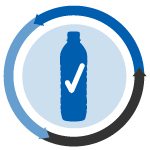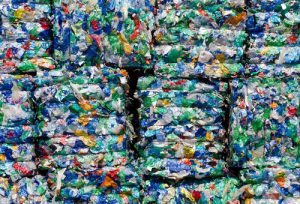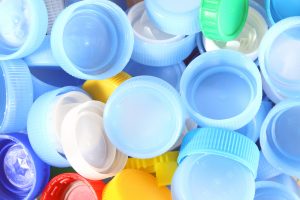 Equipment companies release innovative optical sortation technologies, and the Association of Plastic Recyclers recognizes research improving recyclability.
Equipment companies release innovative optical sortation technologies, and the Association of Plastic Recyclers recognizes research improving recyclability.

 Equipment companies release innovative optical sortation technologies, and the Association of Plastic Recyclers recognizes research improving recyclability.
Equipment companies release innovative optical sortation technologies, and the Association of Plastic Recyclers recognizes research improving recyclability.
 After banning imports of plastic scrap earlier this year, the Indian government has decided to allow exceptions under specific circumstances.
After banning imports of plastic scrap earlier this year, the Indian government has decided to allow exceptions under specific circumstances.
Instead of separating fiber and PE, two British companies are producing a mixed PE-fiber recycled resin, and the growing potential for rPET in nonwoven fabrics is explored.
 A European Union panel approved a pair of proposals that bring recovered material into plastic food and beverage packaging.
A European Union panel approved a pair of proposals that bring recovered material into plastic food and beverage packaging.
 Researchers have launched a project to measure the depth of demand for post-consumer recycled plastics in the U.S. and Canada. Continue Reading
Researchers have launched a project to measure the depth of demand for post-consumer recycled plastics in the U.S. and Canada. Continue Reading
 Spanish researchers develop special washing and extrusion methods to remove odors when recycling EPS fish boxes, and Keurig says it is aiming to produce recyclable K-Cup coffee capsules.
Spanish researchers develop special washing and extrusion methods to remove odors when recycling EPS fish boxes, and Keurig says it is aiming to produce recyclable K-Cup coffee capsules.
 A Canadian community removes EPS from its curbside recycling program, and Greenpeace offers the soda industry a big thorn and a little rose over its plastic usage.
A Canadian community removes EPS from its curbside recycling program, and Greenpeace offers the soda industry a big thorn and a little rose over its plastic usage.
 Oregon’s plastics recycling business goes global, and the pioneering work of a recycled plastics lumber researcher is chronicled.
Oregon’s plastics recycling business goes global, and the pioneering work of a recycled plastics lumber researcher is chronicled.
 A facility near London is using a new baffled oscillation technology to separate PP and PE in a water tank, and a study says more rPET could be used in hot-fill containers.
A facility near London is using a new baffled oscillation technology to separate PP and PE in a water tank, and a study says more rPET could be used in hot-fill containers.
 Virgin and recycled PP prices will likely remain above historical averages until additional prime PP capacity comes on-line in the next couple of years, a markets forecasting expert said.
Virgin and recycled PP prices will likely remain above historical averages until additional prime PP capacity comes on-line in the next couple of years, a markets forecasting expert said.
